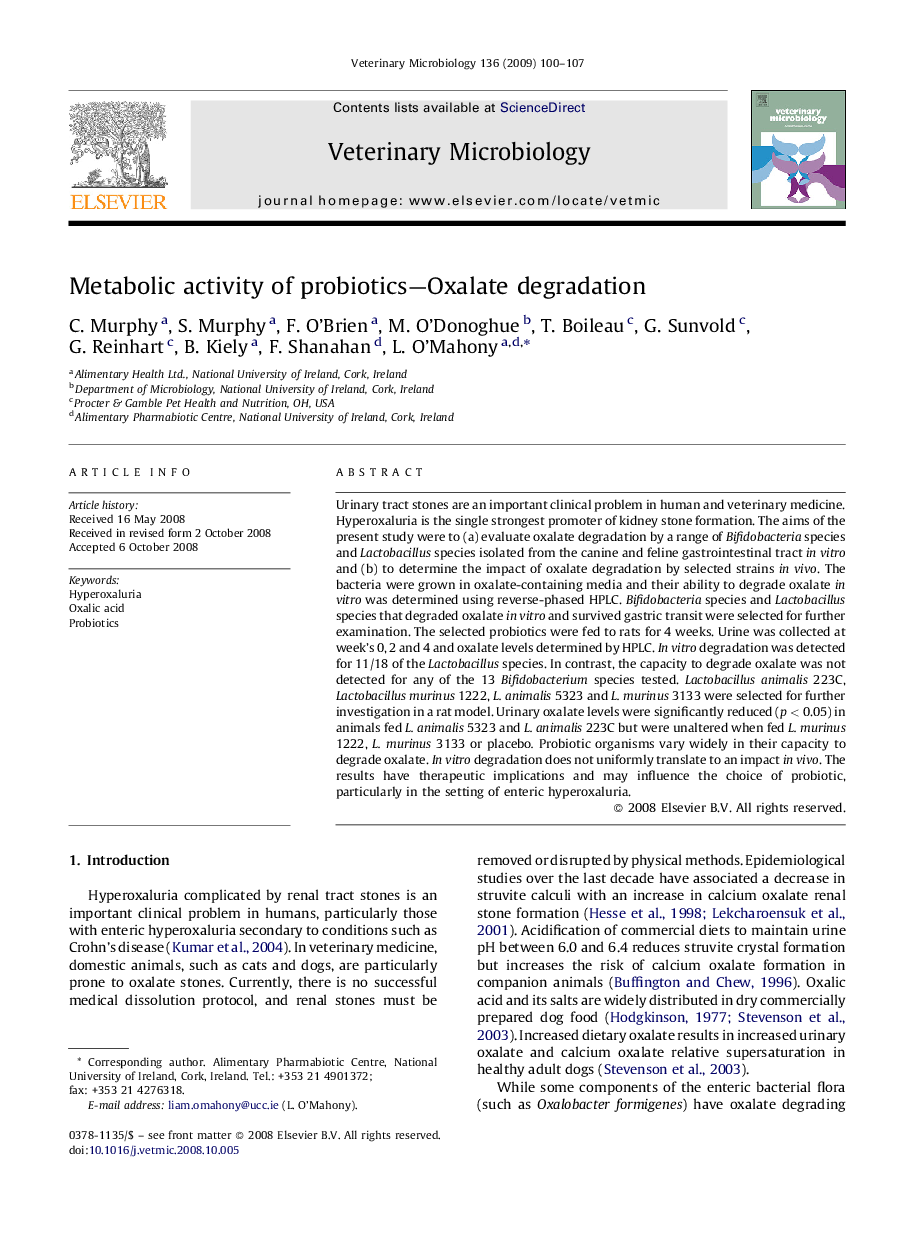| Article ID | Journal | Published Year | Pages | File Type |
|---|---|---|---|---|
| 2468193 | Veterinary Microbiology | 2009 | 8 Pages |
Urinary tract stones are an important clinical problem in human and veterinary medicine. Hyperoxaluria is the single strongest promoter of kidney stone formation. The aims of the present study were to (a) evaluate oxalate degradation by a range of Bifidobacteria species and Lactobacillus species isolated from the canine and feline gastrointestinal tract in vitro and (b) to determine the impact of oxalate degradation by selected strains in vivo. The bacteria were grown in oxalate-containing media and their ability to degrade oxalate in vitro was determined using reverse-phased HPLC. Bifidobacteria species and Lactobacillus species that degraded oxalate in vitro and survived gastric transit were selected for further examination. The selected probiotics were fed to rats for 4 weeks. Urine was collected at week's 0, 2 and 4 and oxalate levels determined by HPLC. In vitro degradation was detected for 11/18 of the Lactobacillus species. In contrast, the capacity to degrade oxalate was not detected for any of the 13 Bifidobacterium species tested. Lactobacillus animalis 223C, Lactobacillus murinus 1222, L. animalis 5323 and L. murinus 3133 were selected for further investigation in a rat model. Urinary oxalate levels were significantly reduced (p < 0.05) in animals fed L. animalis 5323 and L. animalis 223C but were unaltered when fed L. murinus 1222, L. murinus 3133 or placebo. Probiotic organisms vary widely in their capacity to degrade oxalate. In vitro degradation does not uniformly translate to an impact in vivo. The results have therapeutic implications and may influence the choice of probiotic, particularly in the setting of enteric hyperoxaluria.
